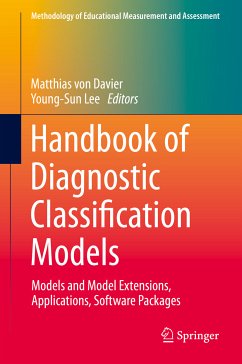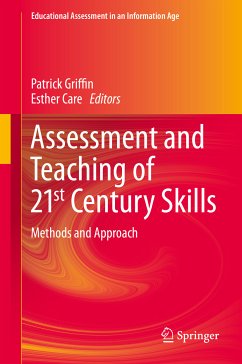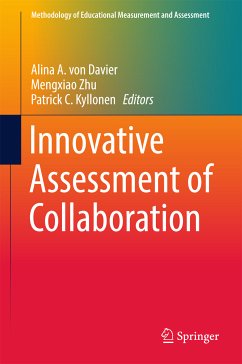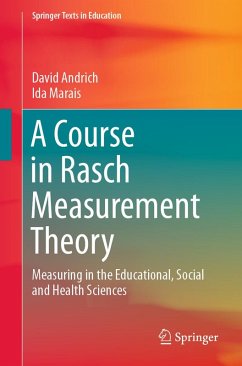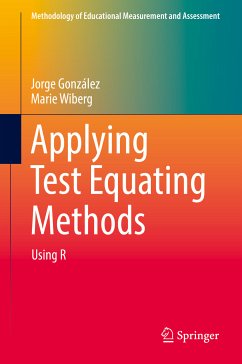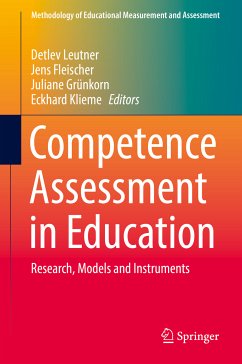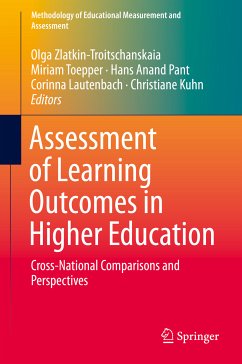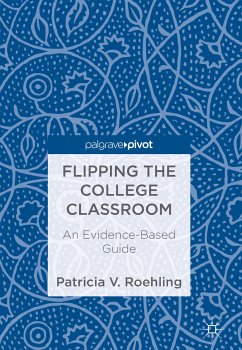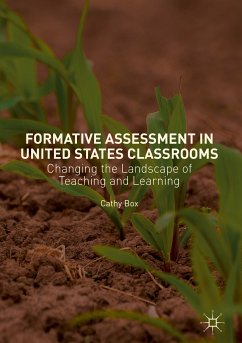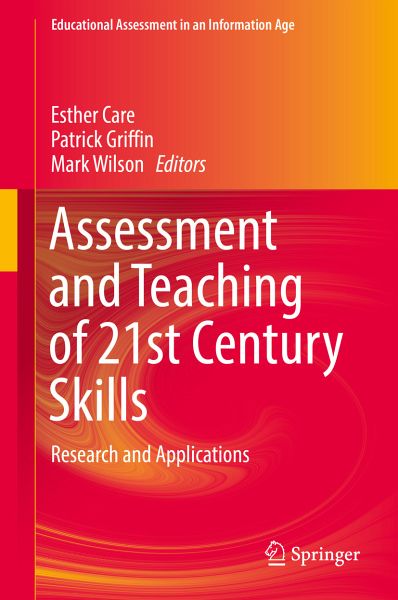
Assessment and Teaching of 21st Century Skills (eBook, PDF)
Research and Applications
Redaktion: Care, Esther; Wilson, Mark; Griffin, Patrick
Versandkostenfrei!
Sofort per Download lieferbar
136,95 €
inkl. MwSt.
Weitere Ausgaben:

PAYBACK Punkte
68 °P sammeln!
This book provides a detailed description of research and application outcomes from the Assessment and Teaching of 21st Century Skills project, which explored a framework for understanding the nature of these skills. The major element of this new volume is the presentation of research information from the global assessment of two 21st century skills that are amenable to teaching and learning: collaborative problem solving, and learning in digital networks. The outcomes presented include evidence to support the validity of assessment of 21st century skills and descriptions of consequent pedagog...
This book provides a detailed description of research and application outcomes from the Assessment and Teaching of 21st Century Skills project, which explored a framework for understanding the nature of these skills. The major element of this new volume is the presentation of research information from the global assessment of two 21st century skills that are amenable to teaching and learning: collaborative problem solving, and learning in digital networks. The outcomes presented include evidence to support the validity of assessment of 21st century skills and descriptions of consequent pedagogical approaches which can be used both to teach the skills and to use them to enhance key learning goals in secondary education systems. The sections of the volume are connected through a focus on the degree to which innovative assessment tasks measure the constructs of interest. This focus is informed by conceptual and methodological issues associated with affordances of 21st century computer-based assessment. How understanding of the nature of the skills, as derived from these assessments, can guide approaches to the integration of 21st century skills in the classroom, is informed by initiatives adopted by participating countries. The guiding questions in this volume are: "Do the assessment tasks measure the constructs?" and "What are the implications for assessment and teaching in the classroom?" It is the third volume of papers from this project published by Springer.
Dieser Download kann aus rechtlichen Gründen nur mit Rechnungsadresse in A, B, BG, CY, CZ, D, DK, EW, E, FIN, F, GR, HR, H, IRL, I, LT, L, LR, M, NL, PL, P, R, S, SLO, SK ausgeliefert werden.



